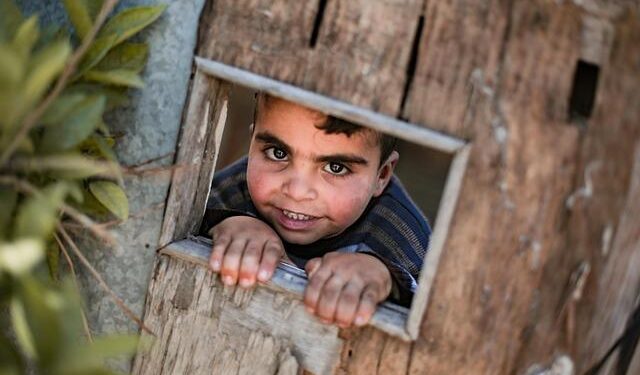Gaza’s economy has suffered a devastating collapse in 2024, contracting by an unprecedented 83%, according to a recent report by the United Nations Conference on Trade and Development (UNCTAD). This dramatic downturn has plunged the territory’s entire population of 2.3 million people into poverty, exacerbating an already dire humanitarian crisis. The report highlights the deepening economic malaise driven by prolonged conflict, blockades, and restricted access to essential goods and services, underscoring the urgent need for international intervention and sustainable development solutions.
Economic Meltdown in Gaza Triggers Widespread Unemployment and Food Insecurity
The severe economic deterioration in Gaza has resulted in an unprecedented surge in unemployment, with rates soaring to over 65% among the working-age population. Key industries such as manufacturing, agriculture, and fishing have all but ceased operations due to restricted access to raw materials and export markets. This economic paralysis has led to widespread job losses, forcing families to rely heavily on humanitarian aid and informal work to survive.
Food insecurity has reached alarming levels, exacerbating the humanitarian crisis across the region. The disruption of supply chains and steep inflation have driven basic commodity prices beyond the reach of most households. Some of the immediate impacts include:
- 45% increase in malnutrition rates among children under five
- 50% reduction in daily caloric intake for over 1.7 million residents
- Escalation of food aid dependency from 60% to over 80% of the population
| Indicator | Pre-2024 Levels | Current 2024 Levels |
|---|---|---|
| Unemployment Rate | 44% | 65% |
| Poverty Rate | 55% | 100% |
| Food Aid Dependents | 60% | 80%+ |
Infrastructure Destruction and Blockades Exacerbate Humanitarian Crisis
The ongoing destruction of critical infrastructure in Gaza has crippled essential services, deepening the plight of its inhabitants. Damage to power plants, water treatment facilities, and hospitals has left millions without reliable access to electricity, clean water, or medical care. Compounded by strict blockades on imports and exports, these conditions have stalled economic recovery and severely limited humanitarian aid deliveries, leaving the population vulnerable to escalating health and food security crises.
Key impacts of infrastructure damage and blockades include:
- Over 60% of healthcare facilities operating below full capacity
- Water contamination affecting nearly 90% of households
- Chronic electricity shortages averaging less than 4 hours per day
- Import restrictions blocking essential construction materials and medical supplies
| Sector | Pre-2024 Status | Current Status | % Change |
|---|---|---|---|
| Electricity Supply | 10 hours/day | ~4 hours/day | -60% |
| Accessible Healthcare Facilities | 85% | 35% | -59% |
| Clean Water Availability | 65% | 10% | -85% |
| Import of Construction Materials | Unrestricted | Severely Limited | N/A |
Urgent International Support Needed to Rebuild Gaza’s Economy and Alleviate Poverty
The economic devastation in Gaza this year has reached unprecedented levels, with the GDP plummeting by a staggering 83%. This collapse has pushed the entire population of 2.3 million into poverty, according to the United Nations Conference on Trade and Development (UNCTAD). The blockade, ongoing conflict, and limited access to resources have severely crippled essential industries such as agriculture, manufacturing, and trade, leaving businesses shuttered and workers unemployed. Immediate, coordinated international aid is critical to halt the downward spiral and begin restoring livelihoods.
Experts urge the global community to mobilize targeted interventions to support Gaza’s fragile economy. Key priorities include:
- Investment in infrastructure: Rebuilding critical utilities and transportation networks to enable commerce and employment.
- Economic diversification: Encouraging new sectors beyond traditional industries to create sustainable jobs.
- Humanitarian assistance: Expanding food security programs and healthcare access to ease immediate suffering.
- Trade facilitation: Removing barriers to exports and imports to revive economic activity.
| Sector | GDP Decline (%) | Estimated Job Losses (Thousands) |
|---|---|---|
| Agriculture | 75 | 45 |
| Manufacturing | 85 | 60 |
| Trade | 90 | 80 |
Insights and Conclusions
The dramatic 83% collapse of Gaza’s economy in 2024, as reported by UNCTAD, has thrust all 2.3 million residents into poverty, underscoring a dire humanitarian crisis. With livelihoods shattered and basic needs increasingly unattainable, the path to recovery remains uncertain amid ongoing political and economic challenges. International attention and coordinated efforts will be critical in addressing the immediate needs of Gaza’s population and fostering sustainable economic rebuilding in the years ahead.










